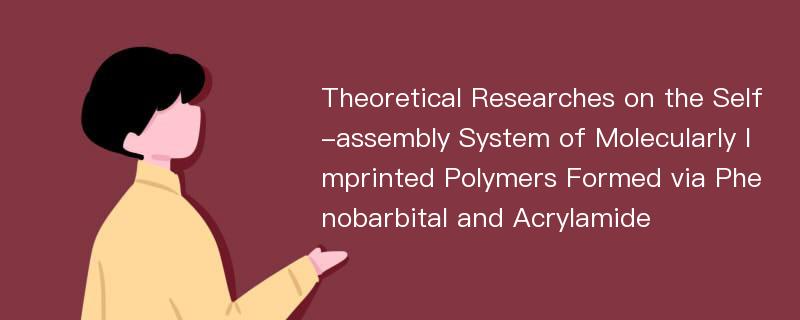
论文摘要
For preparing the phenobarbital(PHN) molecularly imprinted polymers(MIPs) with higher adsorption and selectivity properties, we used the M062 X/6-31 g(d,p) method of density functional theory to predict the various properties of PHN-MIPs. Here PHN is as the imprinted molecule and acrylamide(AM) as the functional monomer. The ethylene glycol dimethacrylate,trimethylolpropane trimethacrylate, divinyl benzene, and pentaerythritol trimethacrylate are as the cross-linking agents, respectively. The acetonitrile, chloroform, toluene, and tetrahydrofuran are used as the solvents, respectively. The configurations of the molecular imprinting self-assembly system for PHN and AM have been simulated to study their bonding sites, binding energy, amount of hydrogen bond, and interaction mechanism. The essence of imprinting interaction for PHN and AM has been revealed by the atomic in the molecule theory. Meanwhile, the analogues of PHN were used to discuss the selectivity property of the stable PHN-AM complex. The results show that the PHN interacts with AM through hydrogen bonds. When the imprinting molar ratio of PHN-AM is1:6 and the THF is as the solvent, the amount of their hydrogen bonds is the most, the binding energy is the lowest, and their configuration is the most stable. In comparison with the other cross-linking agents(EGDMA, TRIM, and DVB), the PETA is more suitable for PHN-MIPs. The selective property of PHN-MIP to PHN is excellent when PHN and DMBA exist at the same time.
论文目录
文章来源
类型: 期刊论文
作者: 王光宇,刘俊渤,唐珊珊,常海波,靳瑞发
来源: Chinese Journal of Structural Chemistry 2019年07期
年度: 2019
分类: 工程科技Ⅰ辑
专业: 化学
单位: College of Food Science and Engineering, Jilin Agricultural University,College of Resources and Environment, Jilin Agricultural University,College of Life Science, Jilin Agricultural University,College of Chemistry and Chemical Engineering,Chifeng University
基金: supported by the Science and Technology Research Project for Education Department of Jilin Province(No.JJKH20170299KJ),the Science and Technology Development Project of Jilin Province(No.20170520145JH)
分类号: O631.3
DOI: 10.14102/j.cnki.0254-5861.2011-2221
页码: 1069-1078
总页数: 10
文件大小: 462K
下载量: 19
